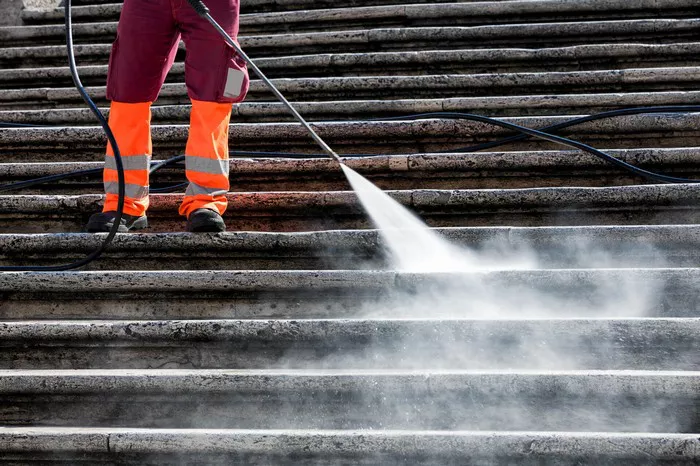In the realm of cleaning and maintenance, few tools offer the versatility and effectiveness of a pressure washer. These machines, powered by either electricity or gas, harness the force of high-pressure water to blast away dirt, grime, and stains from various surfaces. From revitalizing outdoor spaces to enhancing vehicle aesthetics, pressure washers have become indispensable for both residential and commercial users. In this guide, we’ll delve into the myriad applications of pressure washers, exploring how they meet the diverse needs of users while emphasizing safety and environmental considerations.
Introduction to Pressure Washers
Pressure washers operate on a simple yet powerful principle: they use a pump to increase the pressure of water from a garden hose, allowing it to be expelled at high velocity through a spray wand or nozzle. By adjusting the pressure and choosing the appropriate nozzle, users can tailor the intensity of the water stream to suit different cleaning tasks.
The effectiveness of pressure washers lies in their ability to dislodge stubborn grime and contaminants from surfaces with minimal effort. Unlike traditional cleaning methods that rely solely on scrubbing and detergent application, pressure washers leverage the force of pressurized water to achieve remarkable results in less time.
Common Uses of Pressure Washers
Cleaning Hard Surfaces
Driveways, Sidewalks, and Walkways: Concrete surfaces such as driveways and sidewalks are prone to accumulating dirt, oil stains, and mildew over time. A pressure washer can swiftly remove these unsightly blemishes, restoring the pristine appearance of outdoor pathways.
Exterior Walls and Sidings: Dirt, dust, and cobwebs can accumulate on exterior walls and sidings, detracting from the curb appeal of a property. With a pressure washer, users can effectively clean these surfaces, unveiling the true beauty of their home or commercial building.
Patios and Decks: Outdoor living spaces like patios and decks are subject to weathering and staining from foliage, barbecue grills, and outdoor activities. A pressure washer can eliminate dirt, algae, and mildew, rejuvenating these areas for relaxation and entertainment.
Roof Coverings, Gutters, and Soffits: Clogged gutters and grimy roof coverings not only compromise the aesthetic appeal of a property but also pose potential structural risks. Regular maintenance with a pressure washer can prevent debris buildup and prolong the lifespan of these essential components.
Landscaping and Outdoor Maintenance
Lawn Equipment: Lawnmowers, leaf blowers, and other outdoor equipment often accumulate grass clippings, dirt, and debris during use. A pressure washer provides a convenient solution for cleaning these items, ensuring optimal performance and longevity.
Outdoor Furniture: Patio furniture, cushions, and awnings can become soiled from exposure to the elements. By using a pressure washer, users can quickly and effectively remove dirt and stains, prolonging the lifespan of their outdoor furnishings.
Garden Tools and Ornaments: Shovels, rakes, and garden ornaments are susceptible to dirt and rust, which can compromise their functionality and appearance. Regular cleaning with a pressure washer helps maintain these items in top condition, ensuring a beautiful and well-kept garden.
Garbage or Recycling Bins: Over time, garbage and recycling bins can develop unpleasant odors and accumulate grime. A pressure washer offers a hygienic solution for cleaning and deodorizing these containers, promoting a clean and sanitary environment.
Vehicle Cleaning
Cars, Trucks, Motorcycles, and Boats: Whether it’s removing road grime from a car or saltwater residue from a boat, pressure washers are invaluable for vehicle cleaning. Their high-pressure water streams can effectively dislodge dirt, mud, and other contaminants from vehicle surfaces, leaving them looking fresh and pristine.
Paint Stripping
For more intensive projects, higher-pressure washers can be used to strip old paint from surfaces such as decks, fences, or exterior walls. This application requires caution and expertise to avoid damaging underlying surfaces.
Safety and Environmental Considerations
While pressure washers offer numerous benefits, it’s essential to use them responsibly to ensure safety and minimize environmental impact.
Safety Precautions
Protective Gear: Users should wear appropriate protective gear, including safety goggles and gloves, to shield themselves from potential injury caused by high-pressure water and debris.
Stability: When operating a pressure washer, maintain a stable stance and avoid overreaching to prevent slips, falls, or loss of control.
Electrical Safety: If using an electric pressure washer, ensure that all electrical connections are properly grounded to prevent electric shock.
Proper Usage: Follow the manufacturer’s instructions regarding nozzle selection, pressure settings, and distance from the surface being cleaned to avoid damage or injury.
Environmental Considerations
Avoid Pressure-Washing Living Things: Pressure washers should never be used on people, animals, or plants, as the force of the water can cause injury or damage.
Protect Plants: When cleaning near plant beds or garden areas, use plastic coverings or barriers to shield vegetation from the spray and runoff of cleaning chemicals.
Disposal of Wastewater: Dispose of wastewater responsibly, taking care to prevent contaminants from entering storm drains or natural water bodies.
In conclusion, pressure washers are versatile tools that cater to a wide range of cleaning and maintenance needs. From revitalizing outdoor spaces to enhancing vehicle aesthetics and even tackling paint stripping projects, pressure washers offer unmatched efficiency and effectiveness. By following safety guidelines and environmental best practices, users can harness the full potential of pressure washers while minimizing risks and environmental impact.

